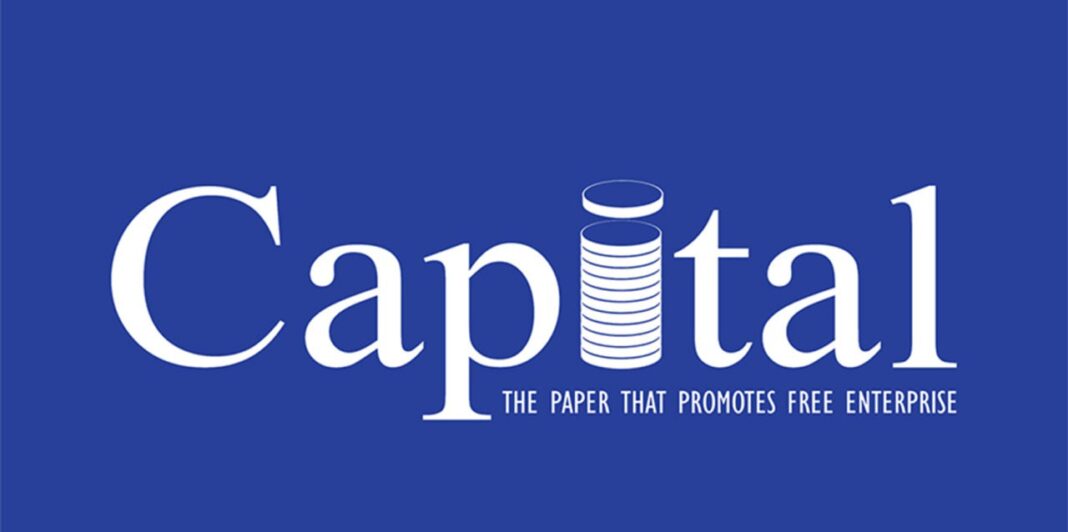Despite strong advocacy from various experts and the Ethiopian Capital Market Authority (ECMA) to reduce income tax deductions on bonds and shares to revitalize the securities market, the new income tax proclamation remains largely unchanged, offering only a moderate tax rate.
Since its establishment, the ECMA has consistently lobbied government officials to alleviate the tax burden on share and bond transactions outlined in the proclamation.
The previous proclamation, last amended in 2016, treats bond and share transfers as taxable transactions similar to fixed assets. Article 59.1, titled ‘Gains on Disposal of Certain Investment Assets,’ mandates that individuals profiting from the sale of immovable assets, shares, or bonds must pay income tax.
Article 59.2 classifies taxable assets into two categories: Class A, taxed at 15% and comprising immovable assets like buildings, and Class B, which includes bonds and shares and is taxed at 30%, as specified in Article 59.7.
The proposed amendment, currently under review by the Parliament’s Plan, Budget, and Finance Standing Committee, aims to eliminate the distinction between Class A and Class B, establishing a uniform tax rate of 15% for all transactions.
Experts note that this change effectively reduces the tax on bond and share sales from the previous 30%. Additionally, Sub-Article 3 of the new law clearly outlines the formula for calculating tax deductions, enhancing transparency.
As Ethiopia prepared to launch its long-awaited secondary market, stakeholders, including the ECMA, urged the government to amend tax laws to create a more favorable environment.
The market, which began operations last week, has led experts to advocate for tax policies that support growth in this emerging financial sector.
Experts emphasized the need for tax frameworks that enable innovative financial instruments, such as collective investment schemes, to transition from theoretical concepts to practical implementation.
“In many countries, funds benefit from pass-through taxation to avoid double taxation. Ethiopia should adopt similar measures to eliminate these barriers,” they stated.
They pointed out that the previous income tax proclamation offers no incentives for the fund market, especially for transactions involving shares and bonds.
To establish the securities exchange as a strong alternative financing channel, experts urged the government to introduce targeted tax incentives.
“Capital raised through the secondary market typically supports economic development, such as funding new projects or business expansions. By providing tax incentives, the government can encourage investor participation and empower issuers to secure capital for their ambitious investment plans,” they explained.
Experts emphasized that the existing income tax proclamation, along with related regulations and directives, imposes significant tax burdens on income derived from investments in shares and bonds, in stark contrast to the lighter taxation on fixed property transactions.
“To foster a vibrant capital market and stimulate investment, revising the previous proclamation is essential,” experts told Capital.
They praised the new proclamation for aligning the tax rate on shares and bonds with that of fixed assets, a change expected to attract more investors to the capital market. However, they expressed a desire for an even lower tax rate for bonds and shares compared to Class A taxable assets.
“Persistent tax disparities may drive potential investors toward fixed assets, which offer limited economic benefits for the nation,” the experts cautioned.
They argued that equalizing tax rates would yield two significant benefits: it would create strong incentives for investors to engage in the capital market while also stabilizing the overheated fixed asset market and reducing inflationary pressures.
To further enhance market stability, reduce speculative activities, and direct capital toward the Ethiopian Securities Exchange (ESX), experts recommend that the government consider raising the income tax rate on transactions involving immovable assets compared to securities. This policy shift would encourage cash-holding investors to participate in the ESX, fostering a more dynamic and productive investment environment.
Last week, the highly anticipated ESX began operations, marking a crucial milestone. In the current budget year, the government expects to raise funds through this innovative platform while facilitating the trading of additional shares.
Other Key Reforms
The government introduced a bold new tax proclamation aimed at expanding revenue, reducing tax avoidance, and modernizing the nation’s tax system. This law, which will replace provisions of Proclamation No. 979/2016, includes significant reforms such as an Alternative Minimum Tax (AMT), increased Withholding Tax (WHT) rates, a simplified presumptive tax regime, and adjustments to the personal income tax schedule.
A central feature of the reform is the introduction of a 2.5% AMT on gross income for businesses whose regular profit tax liability is below 2% of their gross income. This measure targets companies reporting low profits to ensure they contribute a baseline level of tax, addressing tax avoidance and aligning with Ethiopia’s goal of strengthening its revenue base.
The proclamation significantly raises WHT rates, particularly for non-residents and transactions in the digital economy. Non-resident entertainers, teams, or service providers—such as those offering satellite TV, digital services, or transmission via cable, radio, optical fiber, or the internet—will now face a 15% WHT on their gross Ethiopian-sourced income, up from the previous 10%. No expense deductions will be permitted, ensuring higher revenue retention.
Non-resident companies operating through a permanent establishment in Ethiopia will also incur a new 15% WHT on profits repatriated to their home countries, a provision designed to retain more revenue within Ethiopia. Similarly, dividend income paid to non-residents will now be taxed at 15%, increased from 10%, although dividends remain untaxed at the corporate level to encourage reinvestment.
The new law specifically targets income from satellite TV, internet, and similar services provided by non-residents, taxing them at 15% on gross income. This replaces potentially lower or less clearly defined rates under the previous proclamation.
Royalty income for non-residents through a permanent establishment will continue to be subject to a 10% WHT on gross payments, while residents will pay 10% for general royalties and 5% for royalties from cultural or traditional works, maintaining or slightly adjusting previous rates. Notably, the previous 5% royalty WHT for both residents and non-residents has been increased for non-residents in certain situations.
Non-residents providing technical services, such as engineering, legal, financial, IT, or architectural services, for more than 91 days in a tax year will be deemed to have a taxable presence in Ethiopia. These services will be subject to a 15% WHT and applicable income tax rates, strengthening compliance for foreign service providers.







